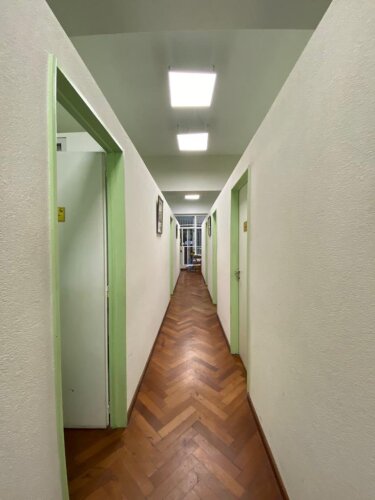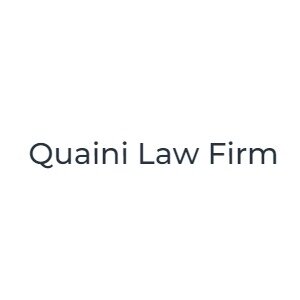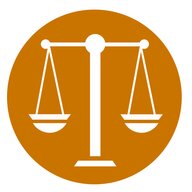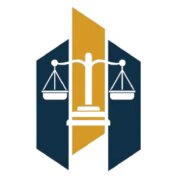Best State, Local, and Municipal Law Lawyers in Buenos Aires
Share your needs with us, get contacted by law firms.
Free. Takes 2 min.
List of the best lawyers in Buenos Aires, Argentina
About State, Local, and Municipal Law in Buenos Aires, Argentina
State, Local, and Municipal Law in Buenos Aires refers to the legal frameworks governing the daily administration and functioning of the city and its districts. This branch of law covers a wide range of issues related to regulations, ordinances, public services, zoning, health, safety standards, and local government operations. Buenos Aires, as both a province and the capital of Argentina, has a unique legal structure that balances both its local governance autonomy and its connection to the national legal system. Understanding these laws is crucial for residents, businesses, and public officials navigating the city's legal landscape.
Why You May Need a Lawyer
There are several scenarios in which individuals or businesses in Buenos Aires may require legal advice in the realm of State, Local, and Municipal Law:
- Real Estate Transactions: Zoning laws, land use regulations, and property taxation can affect property transactions.
- Business Permits and Licensing: Navigating the bureaucracy of starting or maintaining a business, especially regarding health and safety permits.
- Disputes with Local Authorities: Legal disputes regarding fines, penalties, or compliance with local ordinances.
- Public Infrastructure Projects: Involvement in government contracts or public-private partnership projects.
- Community Activism and Advocacy: Representing interest groups or residents in policy change campaigns.
Local Laws Overview
Local laws in Buenos Aires are a reflection of both historical precedents and contemporary issues. Key aspects include:
- Zoning Laws: Regulations that control urban development, building usage, and land allocation.
- Transportation Codes: Rules governing public transportation systems, traffic regulations, and ride-sharing services.
- Environmental Regulations: Laws that address pollution control, waste management, and sustainable development.
- Public Health Ordinances: Standards and protocols to protect public health, particularly relevant during global health crises.
- Cultural Heritage Preservation: Legal measures that protect historically significant sites and entities in Buenos Aires.
Frequently Asked Questions
1. What is the process for challenging a fine from the local government?
To challenge a fine, you need to file an appeal with the relevant municipal authority, presenting evidence or arguments that support your case. It is advisable to seek legal assistance to ensure a proper submission.
2. How do I obtain a business license in Buenos Aires?
You must apply through the local government's business regulation department, often necessitating compliance with specific health, safety, and zoning requirements relevant to your business type.
3. Can I modify my property as per my desired plans?
Property modifications must comply with zoning laws and building codes. Permits are typically required, necessitating approval from the local planning or building department.
4. Are there specific noise regulations in Buenos Aires?
Yes, Buenos Aires has noise control ordinances that typically limit excessive noise during night hours and near residential areas. Violations can lead to fines or other penalties.
5. How are waste management laws enforced?
Waste management laws are enforced by the city's sanitation department, which may impose penalties for improper disposal or discharge of waste.
6. What are my rights if public construction affects my property?
If public construction negatively impacts your property, you may have rights to compensation or remediation, and an attorney can assist in navigating the claims process.
7. Is there legal support for initiatives to preserve cultural landmarks?
Yes, Buenos Aires has legal frameworks and potential funding or support for initiatives that seek to preserve cultural heritage sites, typically in collaboration with local or national government bodies.
8. How do environmental laws affect new business operations?
Environmental regulations may impact how businesses operate, necessitating specific permits or compliance measures to mitigate environmental impact. Legal advice can expedite the process.
9. What steps should be taken if I want to petition against a new law?
To petition against a new law, you may organize collective community efforts, engage with local representatives, or seek legal recourse, depending on the issue's scope and impact.
10. Are there resources available for local governance participation?
Yes, Buenos Aires offers platforms for civic engagement and participative governance, where residents can express concerns or participate in decision-making processes.
Additional Resources
For those seeking further assistance or information, consider consulting the following resources:
- Government of Buenos Aires Website: Provides up-to-date information on laws, resources, and public service updates.
- Ministry of Justice and Human Rights: Offers legal guidance and assistance programs.
- Professional Legal Associations: Such as the Colegio Público de Abogados de la Capital Federal for networking and attorney referrals.
- Local NGOs and Advocacy Groups: Organizations that focus on specific issues like environmental or cultural heritage law.
Next Steps
If you find yourself in need of legal assistance in State, Local, and Municipal Law in Buenos Aires, consider taking the following steps:
- Evaluate specific legal issues and gather relevant documentation.
- Seek preliminary advice from legal aid services or consult with a qualified attorney specializing in local law.
- Contact the relevant governmental department if your issue pertains to permits, licenses, or direct government interaction.
- Join community forums or groups to discuss shared concerns and solutions if your issue involves broader civic matters.
Timely, informed action can often prevent more complex legal disputes and facilitate faster resolution of legal matters.
Lawzana helps you find the best lawyers and law firms in Buenos Aires through a curated and pre-screened list of qualified legal professionals. Our platform offers rankings and detailed profiles of attorneys and law firms, allowing you to compare based on practice areas, including State, Local, and Municipal Law, experience, and client feedback.
Each profile includes a description of the firm's areas of practice, client reviews, team members and partners, year of establishment, spoken languages, office locations, contact information, social media presence, and any published articles or resources. Most firms on our platform speak English and are experienced in both local and international legal matters.
Get a quote from top-rated law firms in Buenos Aires, Argentina — quickly, securely, and without unnecessary hassle.
Disclaimer:
The information provided on this page is for general informational purposes only and does not constitute legal advice. While we strive to ensure the accuracy and relevance of the content, legal information may change over time, and interpretations of the law can vary. You should always consult with a qualified legal professional for advice specific to your situation.
We disclaim all liability for actions taken or not taken based on the content of this page. If you believe any information is incorrect or outdated, please contact us, and we will review and update it where appropriate.













